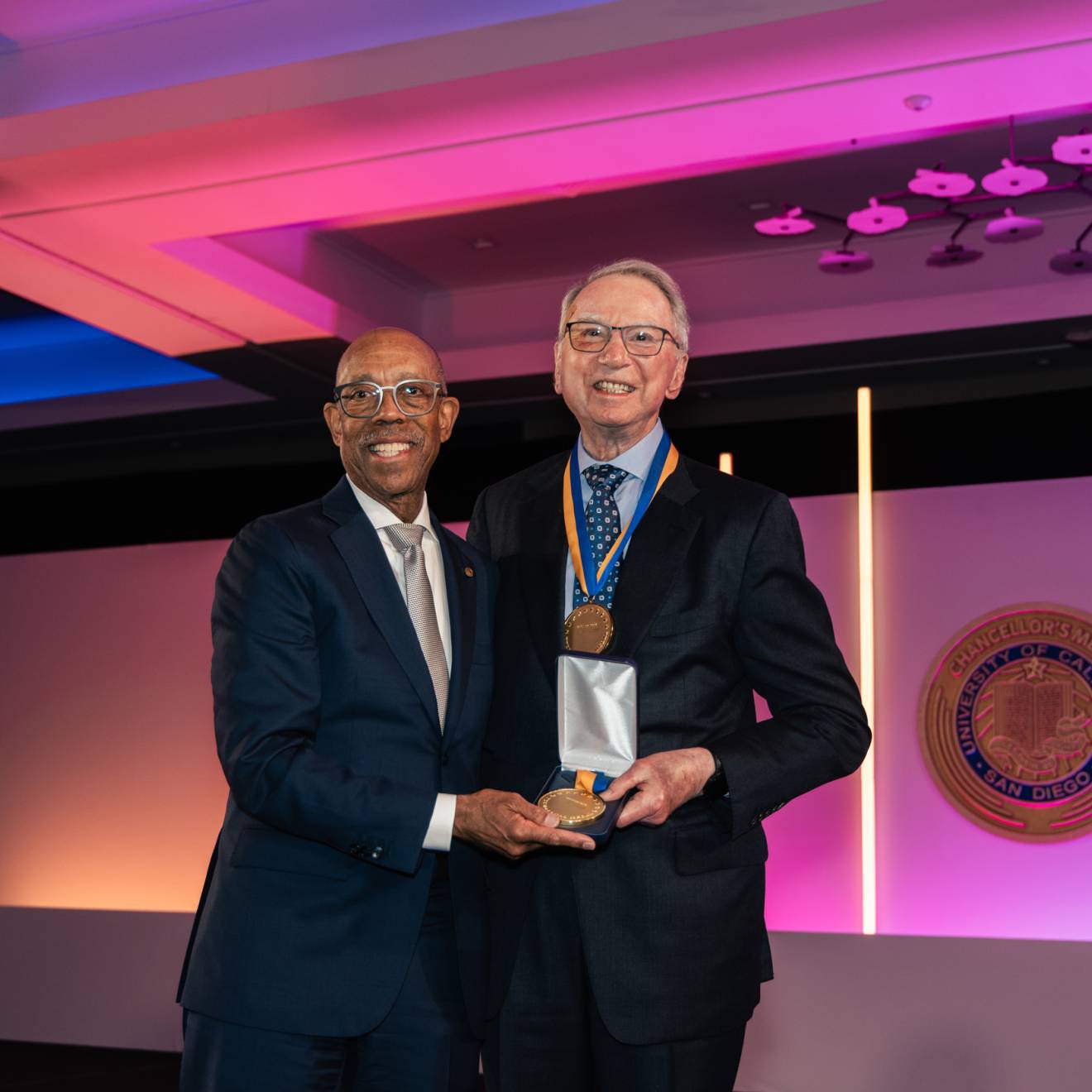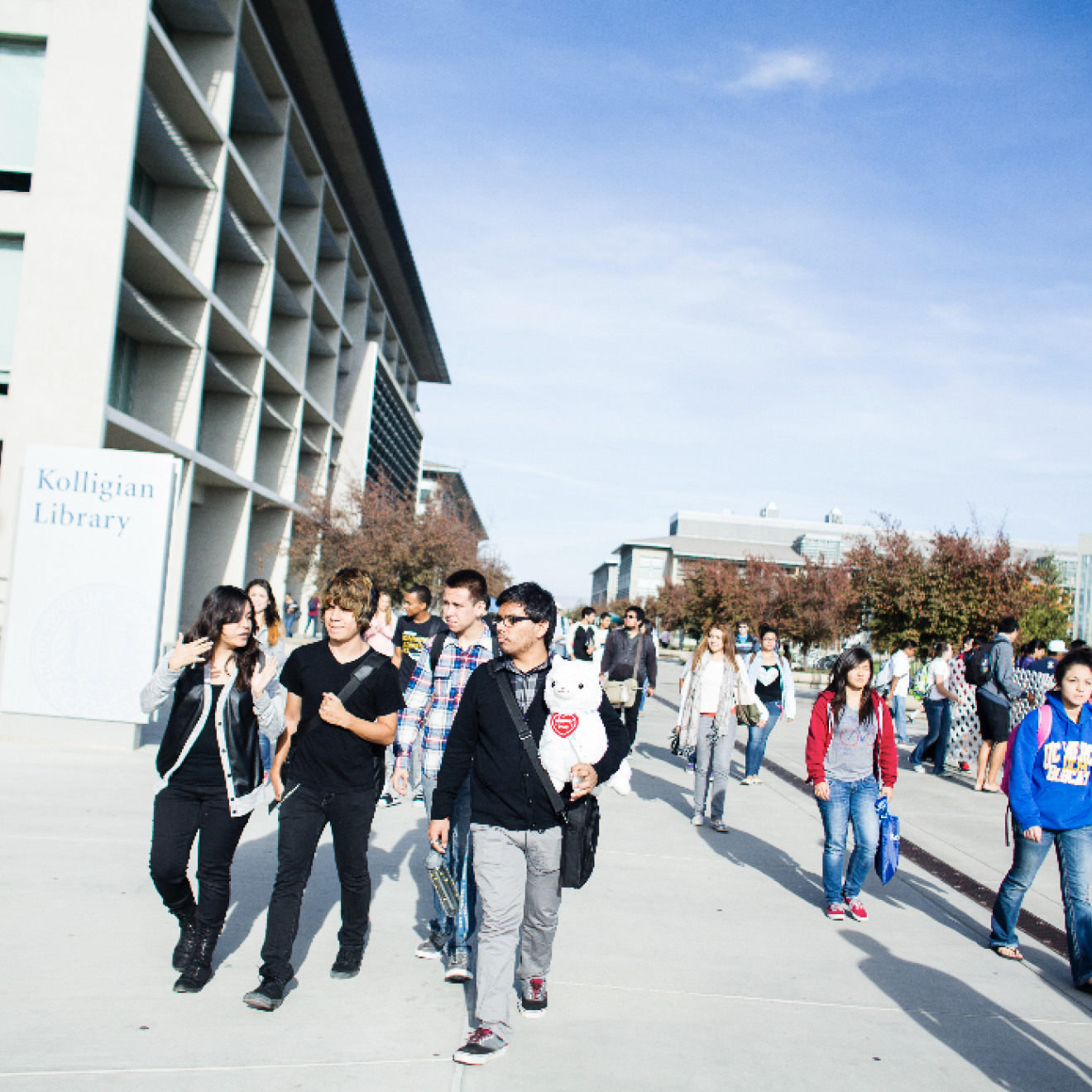Jessica Wolf, UCLA Magazine

Imagine that you’re approaching your favorite coffee shop, when your eyes are suddenly drawn toward an interaction between two strangers happening just outside its doors. One man sits, leaning against the glass window, knees drawn to his chest, a plastic bag of belongings on the sidewalk. Above him, a woman, hand tenderly outstretched, offers the man a few dollar bills.
As you walk past the scene and enter the coffee shop, do you consider looking in your own wallet to see whether you also have something to offer the man on the sidewalk? Do you pull out a few bills and walk outside to offer them to him, wishing you could do more?
In effect: Does the simple act of witnessing such an interaction make you feel better about your neighborhood and community?
If you answered yes to any or all of these questions, you’re probably feeling what social scientists from UCLA’s Bedari Kindness Institute call “elevation” — an uplifting emotion often accompanied by a warm feeling in the chest, goosebumps, sometimes even tears. Hopefully, that feeling comes part and parcel with some “prosocial contagion,” or contagious kindness. Researchers from the institute, founded in 2019, have studied whether kindness can be contagious.
What they found, in short, is yes.
In a world that today seems overloaded with fractured discourse, hate speech, hate crimes, tension and trauma (read the accompanying story on the new UCLA Initiative to Study Hate), we might all benefit from the reminder that our own positive actions have ripple effects.
Daniel Fessler, director of the institute (which is housed in the UCLA College’s Division of Social Sciences), says, “Each of us is kind to someone, and therefore has the potential to be kind to everyone — even those with whom we differ.”

In the study, 8,000 people participated in 15 experiments. Eleven were conducted online, and four were done in person via on-the-street interviews in Los Angeles. Half of the participants watched a viral video titled “Unsung Hero,” which follows a young man as he goes through his daily routine, stopping often to help others. The other half watched a control video of a man performing impressive parkour stunts in a show of athleticism.
Those who participated in person received five $1 bills as payment for their time. At the end, researchers handed each a padded envelope and invited them to make a donation to UCLA Mattel Children’s Hospital. The researchers then turned away so people could anonymously choose how much money, if any, to put inside before sealing the packet.
People who viewed the “Unsung Hero” video gave 25 percent more to the charity than those who saw the athletic-stunt video.
Those surveyed online also got the chance to show their propensity for contagious kindness. Each was asked a hypothetical question: If your employer were to match donations to a worthy cause, would you be inclined to give? Those who viewed the “Unsung Hero” video were significantly more likely to commit to charitable giving: Sixty-seven percent said they would donate to charities if backed by their companies. For people who only saw the parkour video, only 47 percent answered the same way.
The insights derived from the study continue to blossom into new projects that have the potential to make our world a kinder place. Most recently, researchers at the Bedari Kindness Institute teamed up with UCLA’s Center for Scholars and Storytellers and YouTube Kids to curate a series of videos derived from this research, in an effort to inspire K-12 kids to show kindness to others as a way to negate bullying.
Released during October’s anti-bullying month, the videos promote kind, caring behavior in everyday situations. Hosted by actress Tabitha Brown, the collection is anchored by two short animated films showing people doing good deeds, followed by videos of kids who describe witnessing or performing acts of kindness. Stacey Freeman, executive director of the institute, developed a parent resource guide to help inspire kindness in children’s everyday actions. She also recruited kids ages 6-12 to create selfie-style videos as a relatable way for kids to see other kids talking about the importance of kindness.
“As a scholarly organization,” she says, “we are always seeking to translate research and knowledge into real-world applications.”

